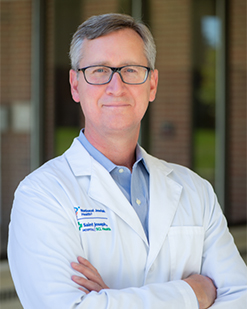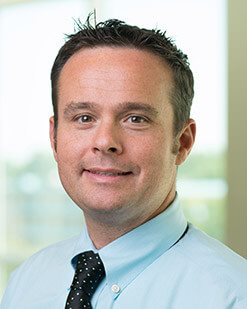Anticoagulation Clinic
The Anticoagulation Clinic at National Jewish Health follows patients who are taking Anticoagulant Medicine (blood thinners), which help prevent blood clots. If you are taking an anticoagulant, the amount of medicine in your blood should be monitored closely to assure you are getting enough medicine to prevent blood clots, yet not too much to cause bleeding. Regular visits to the Anticoagulation Clinic are important to ensure you are on the right medication and to monitor your blood levels closely (when needed). The Anticoagulation Team includes a doctor, nurse, pharmacist and lab members.
What to Expect in the Anticoagulation Clinic
The nurse in the Anticoagulation Clinic will meet with you each visit. The nurse will talk with you about how to care for yourself when you are taking anticoagulant medicine. Important points include:
- Special techniques for taking the medicine
- Potential diet and medicine interactions
- Signs and symptoms of increased bleeding
- Actions to take with increased bleeding
The nurse will draw blood with a fingerstick to test your INR (International Normalized Ratio) level during the visit. The INR is a standard measure of the clotting process time. In most situations, the INR level should fall in a target range. If the INR is too low there is increased risk of blood clot formation. If the INR is too high there is increased risk of bleeding. The Anticoagulation Team will also track your INR results over multiple visits to follow trends in your results. The Anticoagulation Team will look at all this information to determine the dose of medicine you will take.
You will be seen in Anticoagulation Clinic at least every three to four weeks iniitially when using warafarin. You may be seen more or less frequently depending on the anticoagulant medication that your doctor has prescribed. We prescribe and manage the traditional vitamin K antagonists along with all of the new novel oral anticoagulants, some of which require little to no monitoring.
What To Do if You Get a Cut or Bruise
If you get a cut that is bleeding apply pressure to the cut until the bleeding stops. You may want to have gauze pads available when you apply pressure. This will help the blood clot. If the bleeding does not stop or the cut is large, get medical help right away. This may include going to the emergency room or calling 911.
If you have a new bruise, apply a cold pack to the bruise. You may want to have cold packs available also.
When To Call Your Health Care Provider
The main side effect seen with anticoagulant medicine is bleeding. Bleeding or hemorrhage (bleeding within the body) can occur in any part of the body.
If you notice these signs and symptoms call your healthcare provider right away:
- Dizziness, headache or trouble thinking clearly
- Nosebleeds
- Coughing up blood
- Nausea or vomiting blood or coffee ground looking material
- Swelling, painful or hot joints
- Fever
- Increased bruising or bleeding
- Blood in the urine
- Bloody or black, tarry stools
- Severe menstrual bleeding
- Feeling very tired or weak
- Nausea and vomiting for more than 24 hours
- Bleeding from the gums after brushing teeth
Also call if you fall or have an accident, especially if you hit your head, even if you feel fine.
If you have questions about how you are feeling or are concerned, please call. You can call the Anticoagulation Nurse at 303.398.1355.
In an emergency please call 911.
Doctors
-

Christopher K. Dyke, MD, FACC
-

Andrew M. Freeman, MD, FACC, FACP
Reasons to Choose National Jewish Health
- The leading respiratory hospital in the nation and the only one devoted fully to the treatment of respiratory and related illnesses
- Ranked #1 or #2 in Pulmonology by U.S. News & World Report for 26 consecutive years
- Ranked in the top 5% of hospitals in the nation by HCAHPS
- Physicians consistently recognized among the best in the nation by multiple services, including Best Doctors in America and Castle Connolly
- Among the top 6% of organizations funded for research by the NIH, providing patients access to hundreds of active clinical trials
- 124-year history of focus on care, research and education serving patients from around the world with lung, heart, immune and related disorders

Back on Board
Fortunately, in this case, Dunn’s surgery was performed at just the right time. Not only was the procedure a success but, because the condition was caught in the early stages, it was minimally invasive.
Read More
 Clinical Trials
Clinical Trials